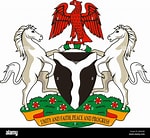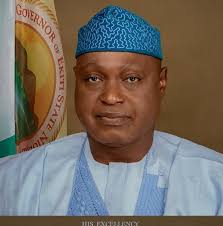Democracy in Nigeria stands at a critical crossroads. What was once celebrated as “government of the people, by the people, and for the people” has devolved into a system that many Nigerians now view with growing disillusionment. The presidential system, operating under the banner of representative democracy, has increasingly become a mechanism for oppression, exploitation, and financial impropriety.
The current democratic structure has created a paradox: a small, powerful elite who enjoy unprecedented wealth and influence while the majority of citizens struggle with basic necessities. More troubling still is the erosion of the separation of powers that should be fundamental to democratic governance. The executive branch, led by a president with near-mythical authority, has effectively subordinated both the legislature and judiciary, who frequently acquiesce to presidential desires rather than serving as independent checks and balances.
This democratic crisis was recently highlighted during discussions at former Imo State Governor Emeka Ihedioha’s 60th birthday celebration in Abuja. Former President Olusegun Obasanjo made the striking observation that “Democracy in Africa has failed because, in context and content, it is not Africa. It does not have any aspect of our culture, our way of life, what we stand for, what we believe.”
While Obasanjo’s critique raises important questions about cultural compatibility, any suggestion of returning to monarchical systems would be misguided. Traditional monarchies in contemporary Nigeria have become deeply politicized, often compromised by controversial selection processes and loyalty to political benefactors.
The solution lies not in abandoning democracy but in reimagining it through political restructuring and fiscal federalism. Nigeria urgently needs a federal structure that devolves substantial powers to constituent units. The current bloated central system, wielding excessive authority, reduces states to dependent entities awaiting monthly allocations, fostering a culture of dependency and administrative complacency.
This dysfunctional system has led to widespread voter apathy. The 2023 presidential election that brought Bola Tinubu to power saw only 27 percent of registered voters participating. In Anambra State, Governor Charles Soludo was elected by approximately 10 percent of eligible voters, with turnout in some areas dropping as low as 9 percent. These figures stand in stark contrast to countries like the United States, where 63.7 percent of voters participated in Donald Trump’s election last year.
The consequences of this democratic deficit are evident in governance priorities. Despite widespread economic hardship and hunger protests, President Tinubu recently acquired a $150 million plane and bulletproof vehicles. The Vice President’s residence cost N21 billion. Meanwhile, senators receive N21 million monthly with an additional N500 million annually for often invisible constituency projects. The disconnect between political privilege and citizens’ reality could hardly be more pronounced.
A return to a structure similar to Nigeria’s First Republic where regions generated and controlled their resources while contributing a percentage to the federal government offers a promising path forward. Under such a system, each of the 36 states would be empowered and incentivized to develop their unique resources rather than passively awaiting federal allocations. This would foster innovation, self-reliance, and competitive development.
While no governance model is perfect, a restructured federation would distribute power more equitably, limiting the authority of an all-powerful presidency and challenging states to succeed based on their inherent strengths. The federal government could then focus on truly national concerns like defense and foreign policy, with a smaller, more efficient cabinet.
As with any significant reform, a restructured Nigeria would require ongoing refinement and adjustment. However, the current trajectory of democratic decline demands bold action. Restructuring offers not an abandonment of democracy but its necessary reinvention—one that could finally deliver on the promise of government that truly serves the Nigerian people.
Politics
The Path Forward for Nigeria’s Struggling Democracy
- by Alimot Akinola
- April 3, 2025
- 0 Comments
- 2 minutes read
- 59 Views
- 6 months ago

Share This Post:
Related Post
Education, General
Kwara Government Begins Statewide School Census to Strengthen Education
September 22, 2025
Business, Economy, Finance
Naira Appreciates to ₦1,497/$ as CBN Convenes MPC Meeting
September 22, 2025






